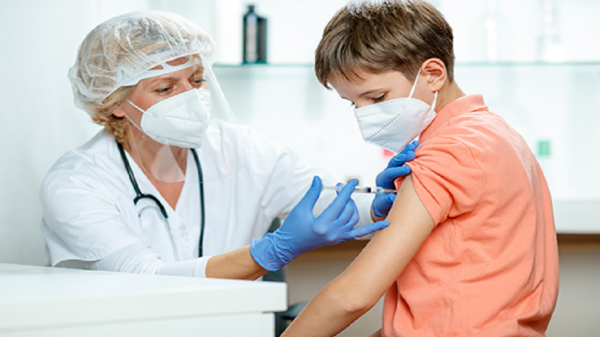The vaccine made by Pfizer and its German partner BioNTech already is available for anyone 12 and older. But with kids now back in school and the extra-contagious delta variant causing a huge jump in pediatric infections, many parents are anxiously awaiting vaccinations for their younger children.
For elementary school-aged kids, Pfizer tested a much lower dose — a third of the amount that’s in each shot given now. Yet after their second dose, children ages 5 to 11 developed coronavirus-fighting antibody levels just as strong as teenagers and young adults, Dr. Bill Gruber, a Pfizer senior vice president, told The Associated Press.
The kid dosage also proved safe, with similar or fewer temporary side effects — such as sore arms, fever or achiness — that teens experience, he said.
“I think we really hit the sweet spot,” said Gruber, who’s also a pediatrician.
Gruber said the companies aim to apply to the Food and Drug Administration by the end of the month for emergency use in this age group, followed shortly afterward with applications to European and British regulators.
Earlier this month, FDA chief Dr. Peter Marks told the AP that once Pfizer turns over its study results, his agency would evaluate the data “hopefully in a matter of weeks” to decide if the shots are safe and effective enough for younger kids.
Many Western countries so far have vaccinated no younger than age 12, awaiting evidence of what’s the right dose and that it works safely in smaller tots. But Cuba last week began immunizing children as young as 2 with its homegrown vaccines and Chinese regulators have cleared two of its brands down to age 3.
While kids are at lower risk of severe illness or death than older people, more than 5 million children in the U.S. have tested positive for COVID-19 since the pandemic began and at least 460 have died, according to the American Academy of Pediatrics. Cases in children have risen dramatically as the delta variant swept through the country.

















